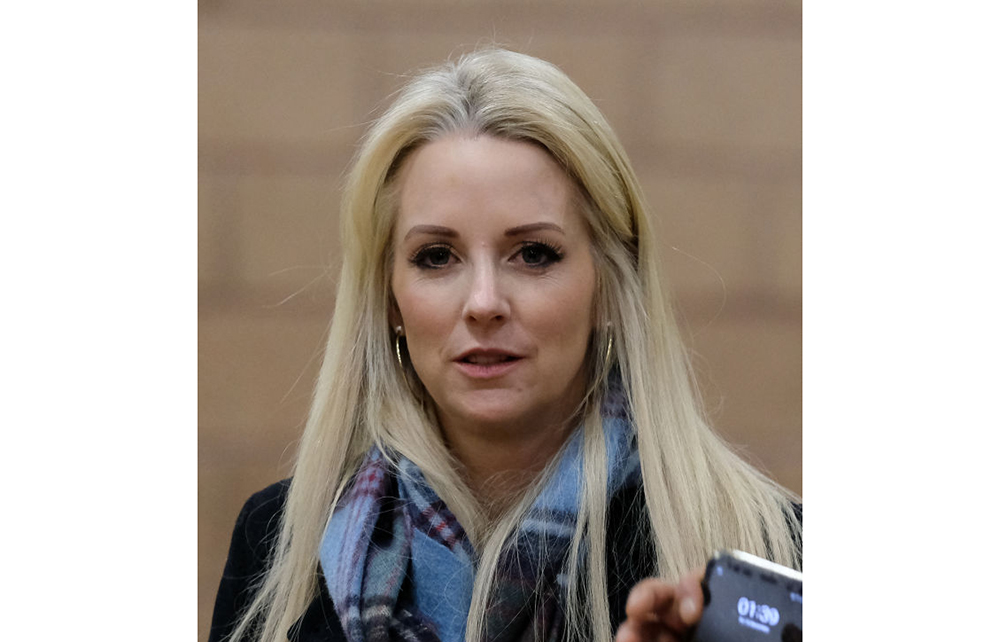I’ve been gripped by the Telegraph’s Lockdown Files. The 100,000 WhatsApp messages on Matt Hancock’s phone, handed to the paper by the journalist Isabel Oakeshott, contain an embarrassment of riches. For those who thought the curtailment of our liberties between March 2020 and July 2021 was justified by ‘the science’, these exchanges will be an eye-opener.
Most senior journalists are more outraged by Oakeshott’s behaviour than by the revelations
The former health secretary and others were not so much ‘following the science’ as doing their best to milk the crisis for favourable press coverage and career advancement, often with no attempt to conceal their indifference to the suffering that their ‘containment measures’ were causing.
Not a day passes without the Telegraph publishing what hacks refer to as a ‘marmalade dropper’ – a story in the morning paper so sensational it causes the reader to drop their toast on the floor. For my money, it’s the scoop of the decade.
Needless to say, the reaction of Isabel’s media colleagues has not been one of awestruck admiration. I’m sure she anticipated that there would be a bit of griping, but not on this scale. She must have reasoned that any scrutiny of her behaviour – breaking her agreement with Hancock when he handed over the messages for her to ghostwrite his Pandemic Diaries – would be eclipsed by the real story, i.e. the authoritarianism and incompetence that characterised the government’s handling of the crisis. But no. Most senior journalists seem to be more outraged by her behaviour than by the revelations.
Partly, no doubt, this is because they feel guilty about not having done more at the time to challenge the coronavirus regulations, such as the mandatory mask-wearing in classrooms when schools were reopened in March 2021, even though we now know that the government was bounced into it by Nicola Sturgeon. Another example: in November 2020 Hancock got away with not reducing the self-isolation period from 14 days to five after someone was ‘pinged’, even though Chris Whitty said that would be fine, provided people tested themselves for five days. The reason, we discovered this week, was because Hancock feared it would ‘imply we’d been getting it wrong’.
As a rule, the questions asked of ministers and scientific advisers at the Downing Street press conferences focused on why the government wasn’t doing more to interfere with our freedom, not less. That was clearly a mistake – as these text messages make clear.
Another reason Isabel has been given such a hard time, I suspect, is because she’s not considered ‘one of us’ by the gatekeepers of the profession. Journalism is a hierarchical trade, with stringers, court reporters and freelancers at one end and editors and columnists at the other. Isabel is an interloper: she’s hugely successful but doesn’t play by the club rules and associates with people the Brahmin elite think of as beyond the pale, such as Arron Banks. She’s an outcast, but one who appears to be better at her job than they are, which is intolerable.
Her other sin is that she doesn’t have the ‘correct’ opinions. She’s pro-Brexit, anti-lockdown and concerned about state overreach. In journalism there is an intellectual orthodoxy when it comes to certain issues, and those who dissent from it are never fully accepted. This goes to the heart of why so many journalistic panjandrums were reluctant to challenge the government during the pandemic. The whole panoply of Covid restrictions – social distancing, the rule of six, masking – were uncritically embraced by the elite of every profession. To challenge them was to risk being seen as a ‘Covid denier’ – someone Hillary Clinton would call a ‘deplorable’. Lockdown sceptics are inclined to blame the machinery of state censorship, such as Ofcom, for the absence of dissent in the upper reaches of my profession, but the truth is that wasn’t necessary. The threat of being cast out from the inner circle was enough.
I sympathise with Isabel because I too am a deplorable. I was so viciously abused by my colleagues when I questioned the wisdom of the lockdown policy in March 2020 that I set up a sceptical news blog to serve as a support group for fellow outcasts. I hope what Isabel has done will lead to some reflection among the leaders of the profession. Why were they so willing to believe what the government was telling them? What can journalists do to protect themselves from such disastrous groupthink in future? If the maharajas of the fourth estate are going to hold those in power to account, they need to stop worrying about preserving their elevated social status.







Comments